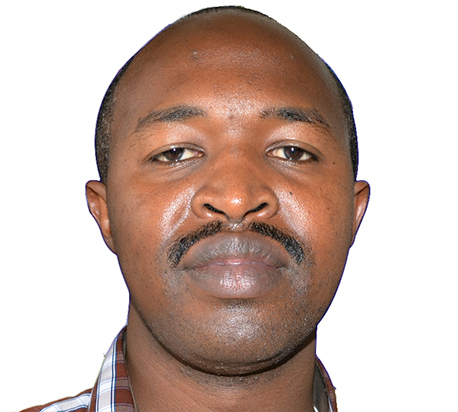Benjamin Ndizeye
// Country Director for the As We Forgive Rwanda InitiativeBENJAMIN NDIZEYE is the Country Director for the As We Forgive Rwanda Initiative (AWFRI), based in Kigali, Rwanda. As We Forgive’s core values are forgiveness, repentance, and reconciliation. Benjamin holds a B.A. in Applied Statistics from the National University of Rwanda. His passion is promoting healing, peace building, and reconciliation in post genocide Rwanda, and he has experience in these activities with organizations such as World Vision, Groupe Biblique Universitaire, Christian Action for Reconciliation and Social Assistance, and African Evangelistic Enterprise. Benjamin oversees AWFRI workshop content development, program implementation, and facilitation team development. Benjamin is a certified counsellor in healing and reconciliation.
Websites: www.asweforgive.org and www.asweforgivemovie.com
Photo: As We Forgive Rwanda Initiative
Interview:
Art is a way of communicating and expressing emotional feelings when there are no words. In art you can create fantastic and powerful things. Art affects our emotions, our feelings, our healing, and ways of living. It is a way of transforming the lifestyle of a human being. It can affect us positively or negatively, depending on the content. It is a key vehicle in transmitting messages in all areas of life, and people are using it as a strong weapon to overcome challenges.
There are many reasons that art is particularly powerful in the transformation of our love and forgiveness. When you consider the programs offered in places such as church, jail, school, and public places, you find that art affects the development of learning, behaving, working, and communicating. The field of brain research contributes to the way we understand how art affects neurological functions. The visual focus required by an artist in any discipline—dance, music, painting, and theater—helps develop and refine higher-level brain functions such as memory and generating meaning. Cognitive functions such as correlating information and inferring relationships, reflection, and applying solutions to problems have been identified as integral to the art- making process. Art touches the brain and empowers decision making.
When we talk about transforming our capacity to love and to forgive, it is because art touches our emotions. The arts are not frills relegated to the margins of government programs. They are an essential part of the health and safety infrastructure as well as part of the cultural fabric of our society.
In preparation for the 1994 genocide perpetrated against Tutsis, art and music were used to mobilize people to exterminate Tutsis in Rwanda. On the other hand, music has empowered Rwandan Patriotic Front soldiers to take courage and move ahead to stop the genocide. Similarly, many artists have contributed to the reconciliation of Rwanda. In my own experience, I have found a lot of tangible proof of how art and music contribute to our capacity to love and to forgive. As someone who has led the process of forgiveness by using artistic tools, I can confirm that art affects love and forgiveness. I have conducted debates after screening the movie As We Forgive in churches, schools, prisons, and other public places, and every time the audience came to a decision to forgive.
“I have found a lot of tangible proof of how art and music contribute to our capacity to love and to forgive.”
– Benjamin Ndizeye, Country Director for the As We Forgive Rwanda Initiative


